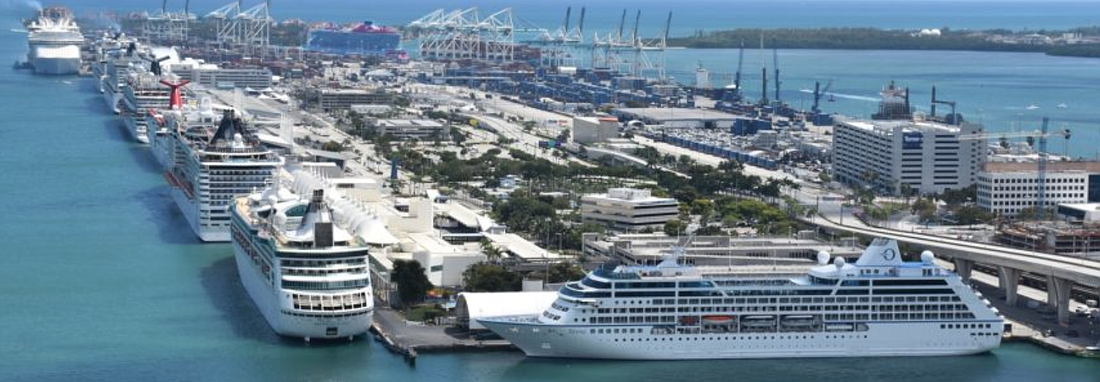The grievous toll the coronavirus pandemic has exacted on Florida’s restaurants, hotels and other hospitality businesses has been well documented. Now new data reveals that another important sector — shipping and ports — has also been severely harmed.
According to a press release issued by the Florida Ports Council, the pandemic stands to wipe out some 169,000 jobs and $23 billion in economic activity related to the state’s ports. Shipments of liquid bulk, dry bulk and containerized cargo are down drastically, and the cruise ship industry’s passenger count is expected to drop by five million by the end of the year.
In a normal year, Florida’s ports contribute about $117.6 billion to the state’s economy, and the sector supports nearly 900,000 jobs, the release states. Port Tampa Bay, the largest of the state’s ports in terms of acreage, is responsible for $17.2 billion of that revenue and 85,000 jobs.
Florida’s ports have not received any funding from the COVID-19 relief packages passed by Congress, a fact that Doug Wheeler, president and CEO of the Florida Ports Council, brought up in an Aug. 3 letter to U.S. Senate Majority Leader Mitch McConnell and Minority Leader Chuck Schumer.
Citing research by Martin Associates, an economic analysis firm that specializes in transportation, Wheeler asks that Congress appropriate “not less than $1.5 billion … to U.S. seaports, and not less than $2 billion for other eligible maritime businesses involved in the essential operation of this nation’s maritime transportation system.”
He says ports need relief funds to help cover expenses related to emergency response measures, cleaning, staffing, workforce retention, paid leave, procurement of protective health equipment and debt service payments.






